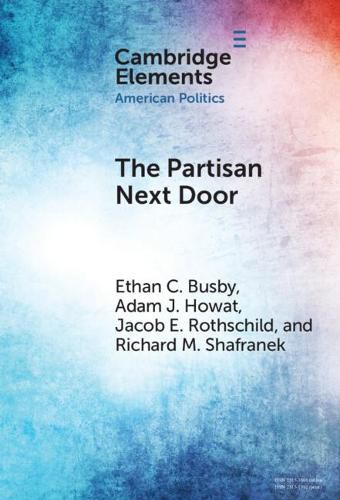Readings Newsletter
Become a Readings Member to make your shopping experience even easier.
Sign in or sign up for free!
You’re not far away from qualifying for FREE standard shipping within Australia
You’ve qualified for FREE standard shipping within Australia
The cart is loading…






In the United States, politics has become tribal and personalized. The influence of partisan divisions has extended beyond the political realm into everyday life, affecting relationships and workplaces as well as the ballot box. To help explain this trend, we examine the stereotypes Americans have of ordinary Democrats and Republicans. Using data from surveys, experiments, and Americans’ own words, we explore the content of partisan stereotypes and find that they come in three main flavors-parties as their own tribes, coalitions of other tribes, or vehicles for political issues. These different stereotypes influence partisan conflict: people who hold trait-based stereotypes tend to display the highest levels of polarization, while holding issue-based stereotypes decreases polarization. This finding suggests that reducing partisan conflict does not require downplaying partisan divisions but shifting the focus to political priorities rather than identity-a turn to what we call responsible partisanship.
$9.00 standard shipping within Australia
FREE standard shipping within Australia for orders over $100.00
Express & International shipping calculated at checkout
In the United States, politics has become tribal and personalized. The influence of partisan divisions has extended beyond the political realm into everyday life, affecting relationships and workplaces as well as the ballot box. To help explain this trend, we examine the stereotypes Americans have of ordinary Democrats and Republicans. Using data from surveys, experiments, and Americans’ own words, we explore the content of partisan stereotypes and find that they come in three main flavors-parties as their own tribes, coalitions of other tribes, or vehicles for political issues. These different stereotypes influence partisan conflict: people who hold trait-based stereotypes tend to display the highest levels of polarization, while holding issue-based stereotypes decreases polarization. This finding suggests that reducing partisan conflict does not require downplaying partisan divisions but shifting the focus to political priorities rather than identity-a turn to what we call responsible partisanship.